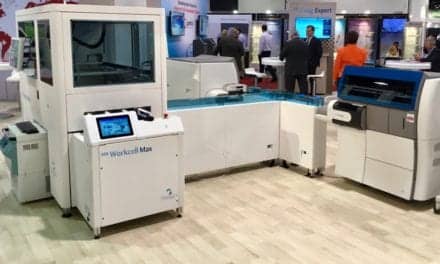New England Biolabs (NEB), Ipswich, Mass, has launched its new line of NEBNext Direct custom-ready panels. Coupled with the company’s proprietary NEBNext Direct target enrichment technology, the panels enable the rapid development and deployment of a customized target enrichment panel by allowing users to select from an extensive library of genes to produce sequencing data with high specificity and coverage uniformity.
“Targeted next-generation sequencing panels for genomic profiling are generally plagued by design difficulty and high cost due to the wide variation in interrogated genes that are specific to a given study,” says Andrew Barry, product marketing manager for target enrichment at NEB.
“As a result, we developed a library of presynthesized ‘baits’ that are optimized and specific to the full exonic content of about 850 genes associated with a range of human diseases, which can be readily combined into customized panels,” adds Barry. “Not only does this give researchers more freedom in panel design, but also it allows them to simply and quickly do more meaningful work with clinically relevant samples.”
“NEBNext Direct custom-ready panels have allowed my research to focus on the specific genes we need to explore,” says Guang Peng, MD, PhD of MD Anderson Cancer Center. “In addition to the convenience of easily selecting genes for focused panels, NEBNext Direct enrichment has provided the necessary reliability and depth of coverage to enable robust somatic variant calling.”
NEBNext Direct custom-ready panels employ NEBNext Direct target enrichment technology, which balances the speed and precision of multiplexed approaches based on polymerase chain reaction (PCR) with the content scalability of hybridization-based methods. This approach rapidly hybridizes both strands of genomic DNA with biotinylated probes prior to streptavidin bead capture, enzymatic removal of off-target sequences, and conversion of captured molecules into sequence-ready libraries. A unique molecular identifier tags each individual molecule prior to the final PCR amplification to enable identification of PCR duplicates, and added barcodes for each library also facilitate high-throughput pooling.
To learn more, visit New England Biolabs.






